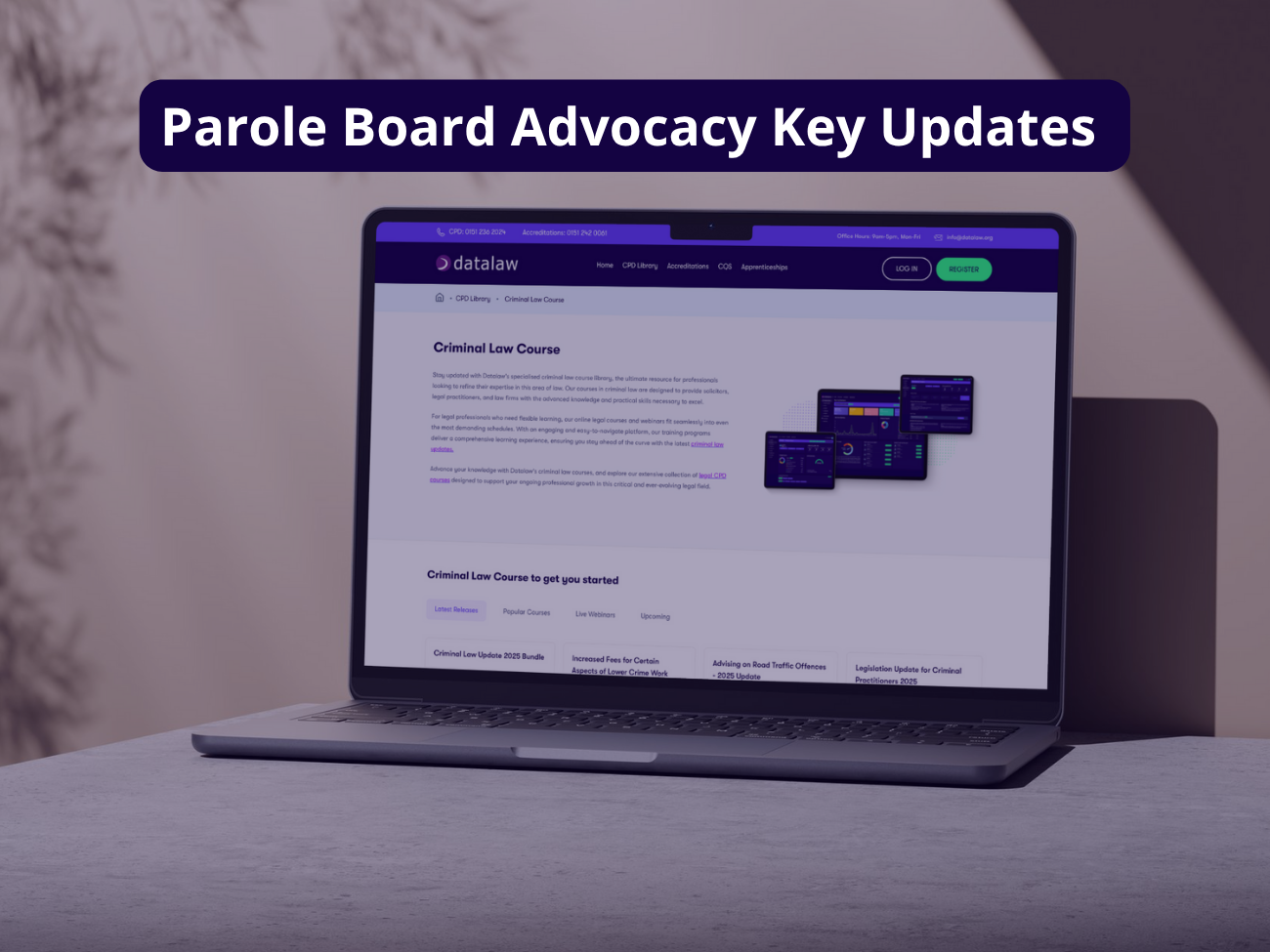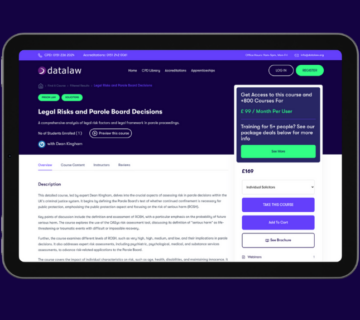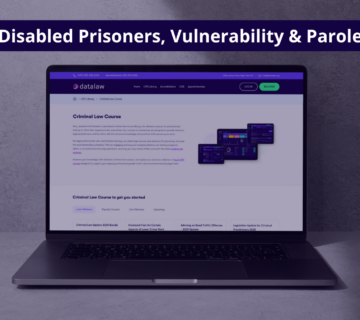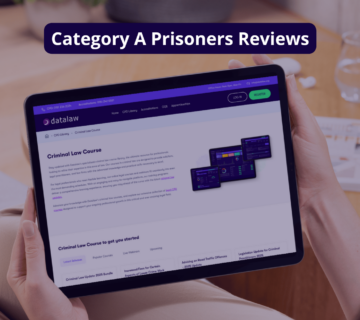Parole Board advocacy is a nuanced and vital aspect of legal practice within the criminal justice system. This complex area requires a deep understanding of legal principles, excellent communication skills, and an ability to navigate challenging scenarios. Datalaw, a leading provider of legal training and resources, has developed a comprehensive CPD course on Parole Board Advocacy Key Updates, complemented by an informative e-book, to guide legal professionals through this intricate field.
Download our Free “Parole Board Advocacy Key Updates” E-Book
Understanding the Statutory Release Test
The foundation of effective Parole Board advocacy lies in understanding the statutory release test. It hinges on whether continued confinement is necessary for public protection. Advocates must focus on this core principle, ensuring all arguments and evidence align with the criteria of the release test.
Knowing Your Panel and the Parole Process
An in-depth knowledge of the parole board panel is crucial. Different panel members may have unique preferences or concerns, and understanding these can help tailor more effective arguments. Remember, parole hearings are more inquisitorial than adversarial, demanding succinct and fair questioning strategies.
Risk Assessment and Management
Risk assessment plays a pivotal role in parole decisions. Advocates should be well-versed in assessing static and dynamic risk factors related to reconviction and the risk of serious harm. Understanding tools like the OASys risk assessment and staying updated with guidelines and research studies are essential.
The Importance of Early Preparation
Early preparation, including identifying key issues and gathering necessary reports or assessments, is vital for a successful parole hearing. This approach ensures that all relevant information is considered and appropriate strategies are developed.
Client Preparation and Written Submissions
Preparing the client for the hearing, particularly in cases of maintaining innocence, is another critical aspect. Additionally, written submissions can play a strategic role in parole hearings, helping to outline key arguments and guide the panel’s questioning.
Understanding Open Conditions and Legal Rationality
Navigating the test for open conditions and understanding the legal rationality within the parole context are advanced skills required in parole advocacy. This involves analysing how decisions align with evidence and ensuring that the process is procedurally fair.
The Role of Peer Review and Reflection
Peer reviews and self-reflection are invaluable for continuous improvement in parole board advocacy. Feedback from colleagues and reflecting on each hearing’s outcomes and panel questioning can significantly enhance advocacy skills.
Datalaw’s CPD Course and E-book on Parole Board Advocacy
To further explore these topics and develop essential skills in parole board advocacy, legal professionals can turn to Datalaw’s dedicated Parole Board Advocacy Course. This course offers detailed insights and practical guidance, making it an invaluable resource for anyone involved in parole hearings. Additionally, the accompanying e-book provides a convenient reference tool, encapsulating key points and strategies in parole board advocacy.
Parole Board advocacy is a challenging but rewarding area of legal practice. By understanding the intricacies of parole hearings, mastering risk assessments, and effectively preparing clients and cases, legal professionals can significantly impact the outcomes of these hearings. Datalaw’s comprehensive CPD course and e-book offer the knowledge and tools necessary to excel in this field, enhancing both legal expertise and practical skills in parole board advocacy.



